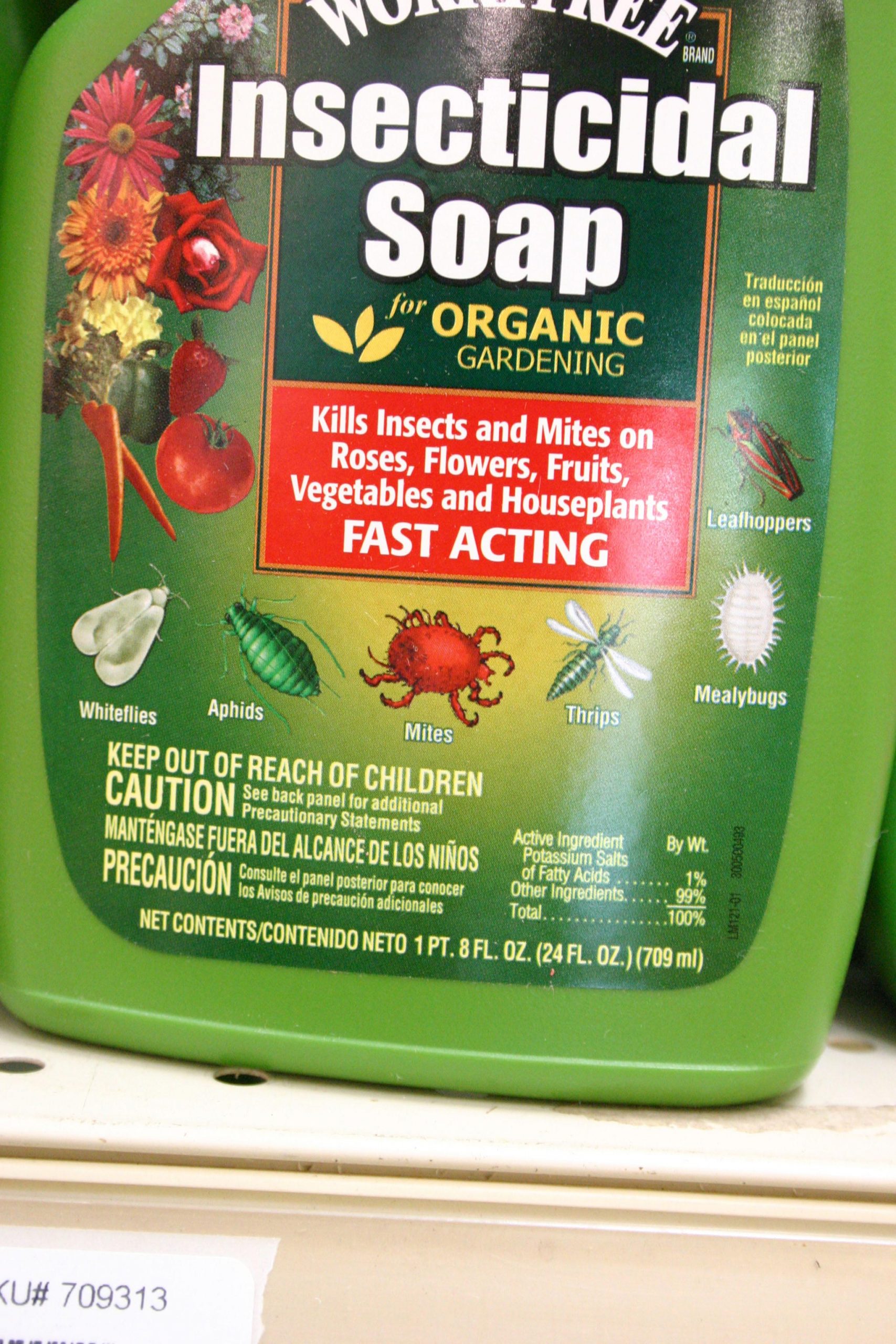Herbs – Growing Organically

Q: I want to sell herbs at a community market and grow them pesticide-free. I’ll need to use insecticidal soap to control whiteflies. Is insecticidal soap a pesticide?
A: You can market the herbs as “naturally grown” or maybe “organic” but you can’t call them “pesticide-free”.
By definition, a pesticide is any substance or mixture of substances intended for preventing, destroying, repelling or mitigating any pest. A pesticide may be a chemical substance, biological agent (such as a virus or bacterium), antimicrobial, disinfectant or device used against any pest.
UGA’s Dr. Elizabeth L. Little says:
The list of approved synthetic substances for use in organic production can be found on the National Organic Program website and also in an “easier to interpret” format on the Certified Naturally Grown (CNG) website.
Insecticidal soap might be used, but it is a synthetic product. The use of any synthetic pest control product should be OK’d by the local certifier if a grower claims to offer organically grown produce. Growers to choose to grow “pesticide-free” or “naturally grown” should also follow the organic recommendations.
According to the organic program guidelines, pest control products should only be used as a last resort after other methods of management have been incorporated into an integrated pest management production system. The idea is to take a systems approach to crop production. In addition, organic pest control products acting alone are generally not going to be as effective as conventional products so others methods of management, such as cultural methods, will need to be employed. Look for university publications on the particular crop and research all methods available for pest management. The ATTRA (National Sustainable Agriculture Information Service) website has many good publications on growing pesticide-free.
More organic growers in Georgia are certified naturally grown (CNG) than those that are certified organic since the USDA organic certification process appears to be more suitable for larger growers, while our market growers are often producing on 1 to 5 acres. Many of the organic-type farmers markets require CNG certification, but not USDA organic certification. CNG growers are expected to adhere to the NOP production requirements.
Contact Georgia Organics for more specific information.


















